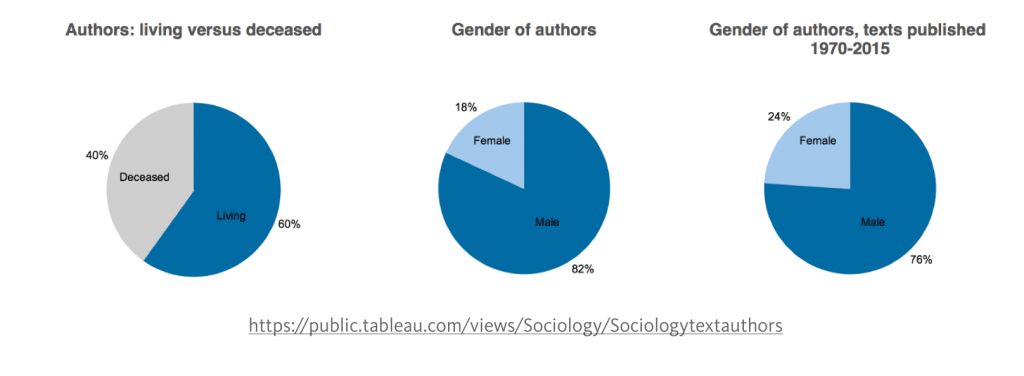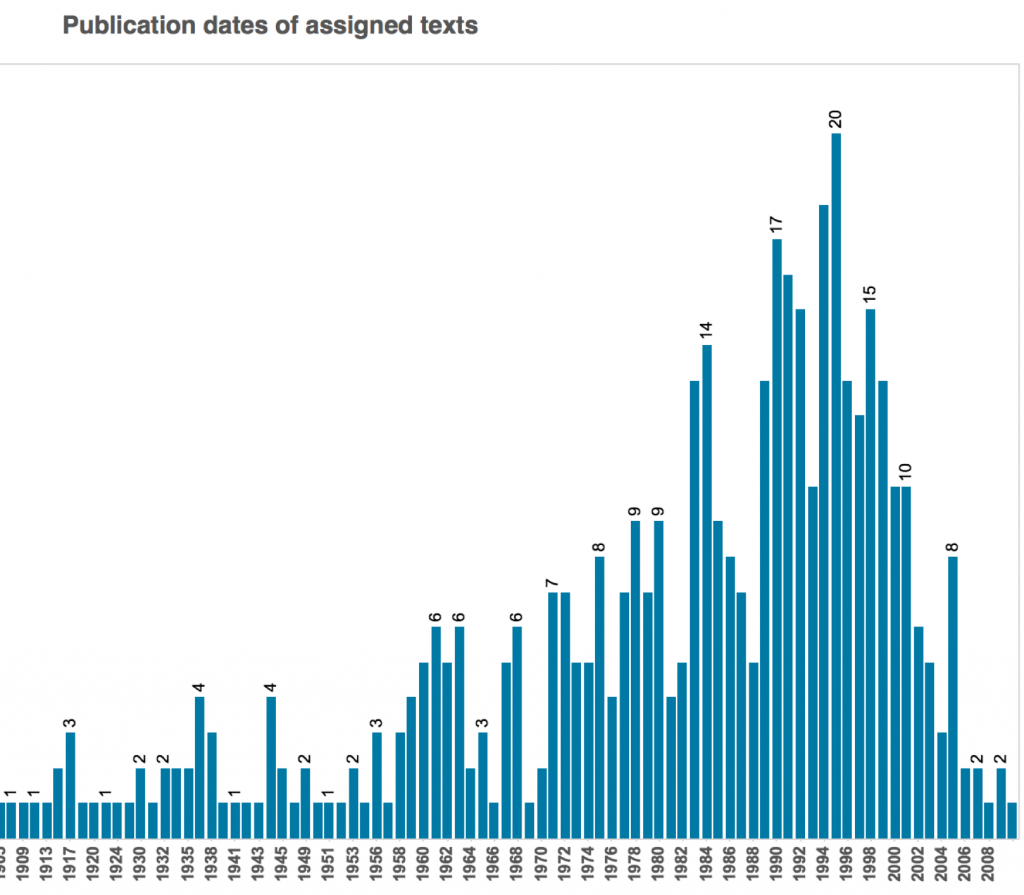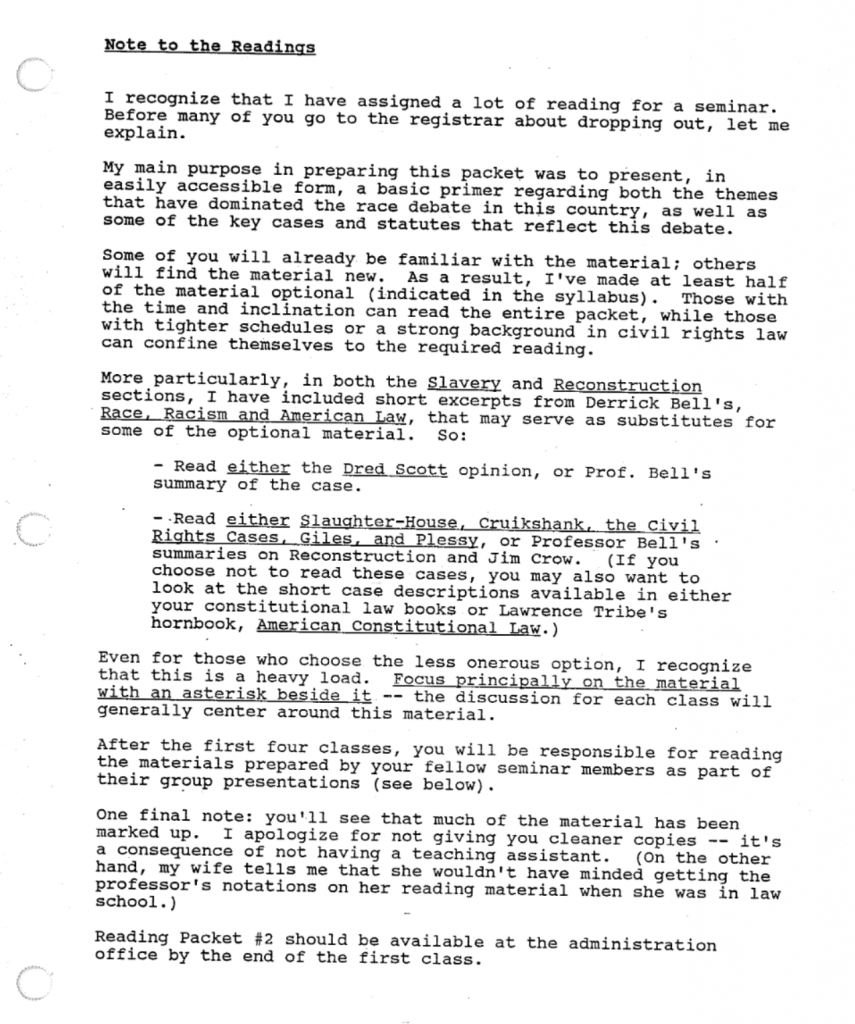We’re pleased to announce that we’ve won a Catalyst Grant for innovative research tool-building projects, offered by Digital Science. The grant will support the extension of the OSP into other languages, beginning with German, Spanish, and Japanese (languages in which we have large document collections).
Blog
LATEST POSTS
Syllabus of the Month (June)
This month’s honorees are Carl Bergstrom and Jevin West from the University of Washington for their very ambitious INFO 198 / BIOL 106B course:
Calling Bullshit in the Age of Big Data
Our learning objectives are straightforward. After taking the course, you should be able to:
- Remain vigilant for bullshit contaminating your information diet.
- Recognize said bullshit whenever and wherever you encounter it.
- Figure out for yourself precisely why a particular bit of bullshit is bullshit.
- Provide a statistician or fellow scientist with a technical explanation of why a claim is bullshit.
- Provide your crystals-and-homeopathy aunt or casually racist uncle with an accessible and persuasive explanation of why a claim is bullshit.
We will be astonished if these skills do not turn out to be among the most useful and most broadly applicable of those that you acquire during the course of your college education.
More.
Syllabus of the Month (February)
This month we highlight RISD Professor Clement Valla’s course, Uncreative Design, and ponder its relationship to the OSP.
DESCRIPTION
“In 1969 the conceptual artist Douglas Heubler wrote, ‘The world is full of objects, more or less interesting; I do not wish to add any more.’” So opens Kenneth Goldsmith’s Uncreative Writing, published in 2011. Following Goldsmith’s lead, this class will explore various strategies in art, writing and political activism that will lead us to an uncreative design. We will make use of copying, repetition, appropriation, detournement and bricolage in a series of studio experiments. Though the class will be focused on ways of (not)making, class participation and discussions of assigned readings will also play a major role in guiding studio work, and in evaluating student projects. There are no prerequisites, though students should be willing to take major risks and have a very open approach to different modes of working.
Creativity, intuition, improvisation, composed, hand-made, unique, original, subjective, genius, authored. These are all to be avoided in this class. Rather what we create will be uncreative, systematic, scripted, chance based, calculated, mass produced, digital, appropriated, objective and copied. The role of contemporary producers is no longer be to create new things, but to channel, frame, re-assemble and contextualize existing things – from creative production towards an ‘uncreative’ production. Uncreative Design explores how new meaning is produced by collecting, archiving, captioning, erasing, parsing. There are many examples of this work and theory in other disciplines, including writing, art, new media, music, film and video.
Syllabus of the Month (September)
Why Sociology May Always be the Field of 20 Years Ago
Kristin Thomson has posted an excellent piece on Medium that unpacks some of the major demographic features of the top 500 sociology texts in the syllabus corpus–particularly in regard to gender, age, and publication dates. To hit a couple of the highlights:
Among the works on the list published since 1970, only 24% are by women authors:
The periodization of the list also yields interesting results. Sociology is predominantly a field built around 20-30 year old texts–a lag that possibly reflects some combination of generational seniority in the field (everyone teaches the major early works by senior figures) and perhaps a relevance horizon beyond which works no longer seem to speak to current issues.

This really whets my appetite for the day when we can do this natively in the Syllabus Explorer, across any combination of fields and texts. The whole piece is worth a look.

